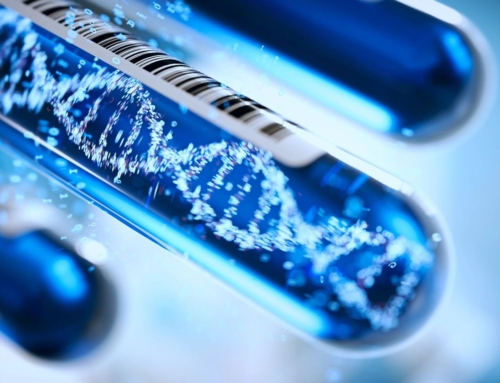Written by Olivia Vaughn
February marks Gallbladder and Bile Duct Cancer Awareness Month, a time to raise awareness about these rare but serious cancers as well as emphasize the role of genetic testing in both prevention and early detection. Gallbladder and bile duct cancer affects around 8,000 Americans every year. Although these cancers are less commonly discussed than other types of cancer, their impact is significant in those who are affected. The information below will discuss the importance of recognizing gallbladder and bile duct cancers, the genetic risk factors associated with these cancers, and how genetic testing plays a vital role in managing and preventing these diseases.
Understanding Gallbladder and Bile Duct Cancer
Gallbladder and bile duct cancers are often grouped together as they affect parts of the biliary system, which is responsible for producing and transporting bile to aid in digestion. Although these cancers are relatively rare, they can be aggressive and difficult to diagnose in the early stages. Gallbladder Cancer (GBC) develops in the gallbladder, a small organ located beneath the liver that stores bile. GBC is typically diagnosed at an advanced stage, often due to the lack of symptoms until the cancer has spread. Bile Duct Cancer (also known as cholangiocarcinoma) affects the bile ducts, which carries bile from the liver to the gallbladder and small intestine. Cholangiocarcinoma can occur in different parts of the bile duct such as inside the liver, outside the liver, or near the junction of the bile ducts. Both cancers share several symptoms, such as jaundice (yellowing of the skin or eyes), abdominal pain, and unexplained weight loss. A reason for the delay in diagnosis for patients is due to these symptoms are often associated with other less serious conditions.
Risk Factors and Genetic Considerations
The causes of gallbladder and bile duct cancers are not fully understood, but there are several known risk factors including older age, chronic inflammation of the bile ducts (such as primary sclerosing cholangitis), gallstones, and infections like hepatitis or liver disease. One of the key factors that genetic counseling addresses is the hereditary component of these cancers. Some individuals may have a higher risk of developing gallbladder or bile duct cancers due to inherited genetic mutations such as Lynch Syndrome and Familial Adenomatous Polyposis. Lynch syndrome is one of the most well-known hereditary cancer syndromes caused by mutations in genes that repair DNA errors, including MLH1, MSH2, MSH6, and PMS2, as well as a fifth gene EPCAM. Individuals with Lynch syndrome are at a higher risk for several cancers, including colorectal, endometrial, ovarian, and biliary tract cancers, particularly bile duct cancer. Familial Adenomatous Polyposis (FAP) is a hereditary condition that causes many precancerous polyps to develop in the colon and rectum. Individuals with FAP are at a higher risk for cancers of the stomach, colon, small intestines, pancreas, liver, thyroid, adrenal glands, brain, and bile ducts. For people with a family history of biliary cancers or a known hereditary cancer syndrome, genetic counseling can help assess the risk of developing these cancers.
The Role of Genetic Counseling in Gallbladder and Bile Duct Cancer
A genetic counselor can help individuals understand their risk based on their family history and may recommend genetic testing to identify mutations that could predispose them to these cancers. Here are several ways genetic counseling can be beneficial:
- Assessing Family History and Risk Factors
Gathering a detailed family history to assess whether individuals have a hereditary predisposition to gallbladder or bile duct cancer. If a family history of gastrointestinal cancers or colon polyps is present, genetic counseling may help determine whether genetic testing is necessary. - Genetic Testing and Interpretation
If a hereditary cancer syndrome is suspected, genetic counselors can recommend genetic testing to identify specific mutations. The results of these tests can provide valuable information on cancer risk. For example, finding a mutation in the MLH1 or MSH2 gene can guide healthcare providers on the appropriate screening methods and preventive measures to take. - Screening and Early Detection Strategies
Individuals identified as being at increased genetic risk for gallbladder or bile duct cancer can benefit from earlier or more frequent screenings, which may lead to earlier detection and better outcomes. For individuals with Lynch syndrome, preventive strategies might include regular colonoscopies, endometrial biopsies, or in some cases preventive surgeries. - Emotional Support and Decision-Making
Receiving a genetic risk assessment can be overwhelming, particularly when making decisions about future health. Genetic counselors help provide individuals and families the information necessary to make informed decisions about their healthcare. This may include discussions about the implications of testing, options for surveillance, and family planning.
Conclusion
As we go through February we should all take the time to reflect and discuss the impact of Gallbladder and Bile Duct Cancer. As we continue to raise awareness and provide support, we can help individuals with a family history or genetic predisposition to these cancers make informed decisions about their health. With the help of genetic testing, individuals can navigate their family history, understand their genetic risks, and take proactive steps toward better health outcomes. The team at Chicago Genetic Consultants welcomes any questions about gallbladder and bile duct cancer, so please contact us with any questions!







